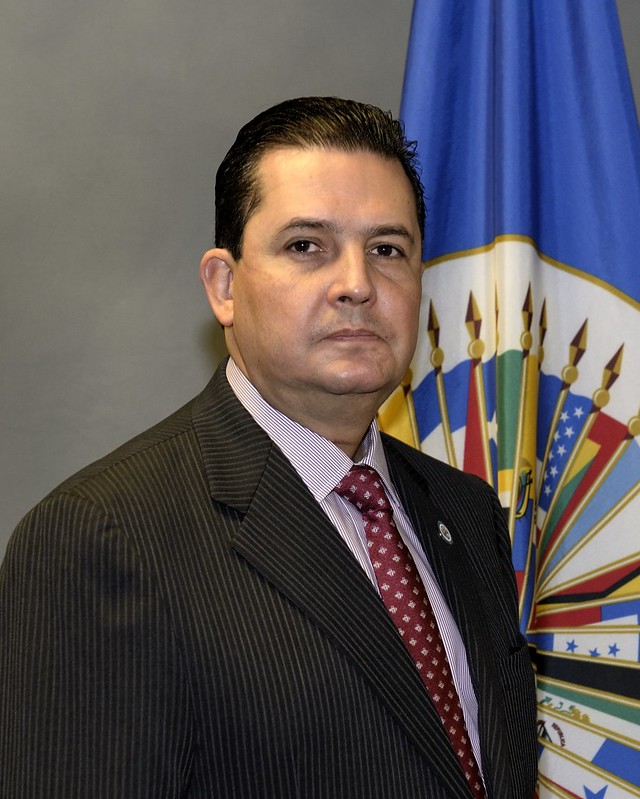 About this Episode:
About this Episode:
Interviewed by Kellogg Doctoral Student Affiliate Alejandro González, OAS Secretary for Strengthening Democracy Francisco Javier Guerrero Aguirre discusses emerging and lingering challenges for electoral democracy in Latin America and the Caribbean. Drawing upon his engagement with 49 electoral observation missions in 34 countries, Guerrero highlights the role of organized crime in weakening democracy – as recently seen in Ecuador – and social mobilization against democratic backsliding – as in Guatemala.
Show Notes:
Welcome to Global Stage, a podcast highlighting academic and policy-oriented international research on democracy and human development! Global Stage is brought to you by the Kellogg Institute for International Studies, part of the Keough School of Global Affairs at the University of Notre Dame. Your host today is Kellogg Doctoral Student Affiliate Alejandro González Ruiz, a PhD student in International Studies.
He is joined by Francisco Javier Guerrero Aguirre, the Secretary for Strengthening Democracy at the Organization of American States (OAS). Dr. Guerrero has been a researcher, professor, and government official. He obtained his PhD in International Affairs and a Master in International Conflicts Analysis from University of Kent at Canterbury, England. He also holds a law degree from the Universidad Nacional Autónoma de México (UNAM). Guerrero is the author of several books including The Role of Radio and Television in the New Model of Political Communication: Lessons for Mexico and The Vote Of Mexicans Abroad: Background, Reflections and a Look into the Future. He has also contributed to several books and a wide variety of journals. Guerrero also has participated in 49 electoral missions in 34 countries.
To begin, Dr. Guerrero gives an overview of his role in supporting democracy in the region, which includes attending many different electoral and regional democratic events. He discusses the democratic charter which gives the instruments to secure fair and free elections in the country. He also helps to organize electoral missions, work in favor of peace, and help out the counsel and other countries in the regions. In his academic and professional career, he has always been very involved in politics and has an interest in elections in democracy. He was the electoral counselor and worked at a university related to government. The key challenges that the region faces in maintaining democracy is first poverty, which created problems with the politicians alleviating the issues. The second challenge is living in toxic polarization and social inequality which has brought on a wave of immigration that we haven’t seen in the past with 12% of people in Nicaragua that have fled the country and seven million Venezuelans that left their country.
Next, the OAS addresses these challenges by saying that problems are linked to the distribution of wealth. Organized crime has become a strong problem in many Latin American countries, which has caused a rise in crime and an impact on democracy. For example, drug lords will capture the police so they can guarantee an operation without any trouble from the law. They also discuss the election in Guatemala where the candidate won by seven points in the final round.
Guerrero states that democracy is not given and can easily be lost if you don't support solutions or take care of the people. The involvement of international organizations like the UN and OAS is a substantial tool to guarantee transparency in the process of democracy, along with respecting international and domestic law. The role of AI will bring a lot of polarization and misinformation that complicates how the citizen discerns different political offers. He says we need to revive journalism as a way for a counterattack to all this fake information. Citizens also need to know the power of voting because it’s the only tool we have to give and change our opinions. Latin Americans are very enthusiastic about voting, even during the pandemic, but Guerrero also is worried about the quality of governing.
Links:
Learn more about Francisco Javier Guerrero Aguirre.
Learn more about the Kellogg Institution for International Studies.
Listen:
Listen below, ask your smart device to “play Global Stage Podcast,” or find us on:
Apple | Spotify | Stitcher | iHeartRadio | TuneIn





